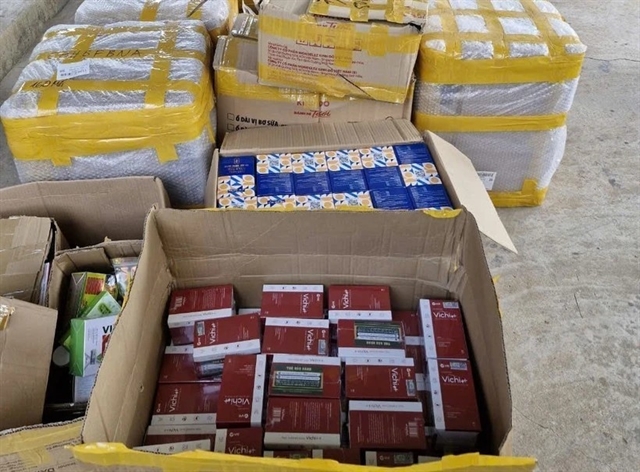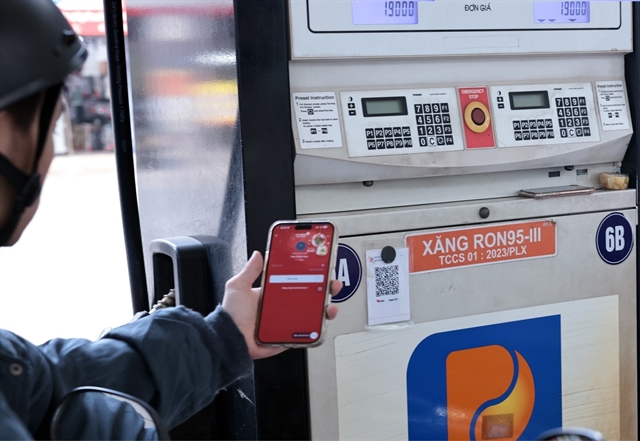 Economy
Economy

 |
| Suspected counterfeit goods seized by police in Hà Nội. — VNA/VNS Photo |
HÀ NỘI — Việt Nam’s dietary supplement market has expanded rapidly over the past decade, reaching a scale of approximately US$2.4 billion in 2022, according to Euromonitor.
The sector is expected to grow at a compound annual rate of around 7 per cent from 2023 to 2028.
This growth reflects rising interest in preventative health solutions, influenced by concerns about food safety, environmental quality and the capacity of the healthcare system. At the same time, the market faces increasing scrutiny over product authenticity, advertising practices and regulatory oversight.
A recent case involving a pharmacist, who was arrested for operating a large-scale counterfeit production network, has drawn attention to these issues as authorities seized over 100 tonnes of goods, including unlicensed supplement and medical devices.
Confiscated items included tens of thousands of boxes, bottles, blister packs, labels and packaging materials used to imitate more than 100 different product types.
Initial findings from the Ministry of Public Security’s Institute of Criminal Science confirmed that two Herbitech products, MEDI KID CALCIUM K2 and BABY SHARK food product, were counterfeits. Both were marketed as children’s health supplements. Police are continuing to investigate 115 other Herbitech products suspected of being fake. Several were reportedly found at retail pharmacies.
Unlike pharmaceuticals, dietary supplements in Việt Nam are not required to undergo clinical trials or centralised safety evaluations. The current regulatory framework allows products to be introduced to the market through a self-declaration process.
This involves submitting a compliance dossier, a test report from a private laboratory and a public notice, without mandatory assessment by authorities before sale.
Products often include disclaimers stating they are not medicines and are not intended to replace treatment. However, such statements are sometimes accompanied by unverified claims, including benefits such as enhanced immunity, weight reduction, detoxification or improved cardiovascular health.
Regulatory agencies typically do not assess these claims before market entry. In cases where violations are found, penalties are often limited, and products may re-enter the market under different branding with the same formulation.
Social media platforms have become a significant channel for product promotion, often using influencers and livestreaming. These campaigns frequently feature non-experts presenting products with professional packaging and scripted messaging. In some cases, pharmacies and clinics have participated in sales and distribution activities, raising questions about professional standards and commercial incentives.
The commercial appeal of dietary supplements, particularly in comparison to prescription medicines, has led to increased participation by a range of sellers, including retired medical professionals and retail pharmacies. This trend has made it more difficult for consumers to distinguish between evidence-based advice and commercial promotion.
While dietary supplements may contribute to public health when appropriately used, the current system’s limited oversight raises concerns about product quality, safety and consumer protection.
Given the market’s size and continued growth, several experts and policymakers have called for a review of existing regulations, including stronger scientific evaluation, stricter controls on advertising, and improved enforcement to ensure public health and safety. — VNS




